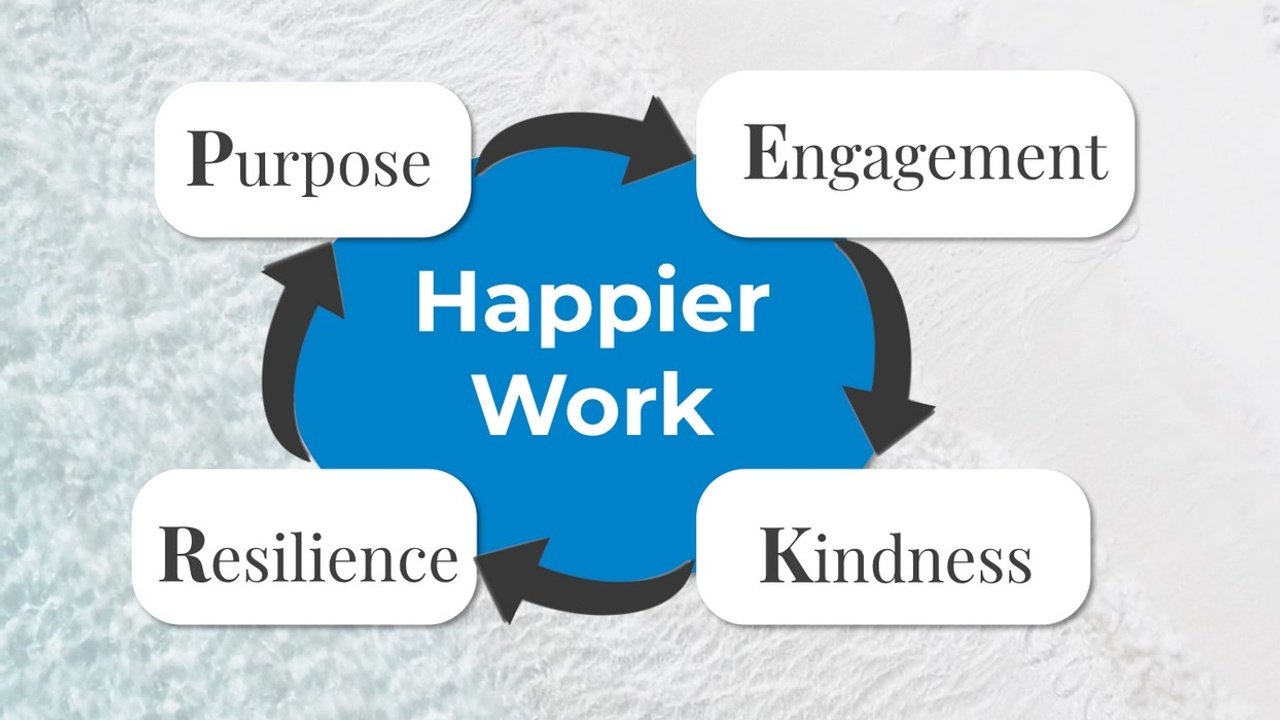PERK Up Your Workplace
Updated 9/16/2021
Someone asked me recently what the key is to happiness at work. I follow the PERK formula: Purpose, Engagement, Resilience, and Kindness.
EDIT: I now have a 44-minute webinar that goes into more detail and provides 4 practical tips for everyday use for $100. Check it out!
Purpose
Feeling happy at work requires knowing your purpose. Purpose has nothing to do with money. It’s not about a paycheck or profits. It’s knowing that what you do makes a difference in the world. Purpose is not necessarily about doing good; the difference may be about social status or power or something relatively insignificant - like - I make things people can store stuff in. Those who can easily connect their purpose to dearly-held personal values are even happier.
If you show up to work just for the paycheck, it’s not necessarily time to find a new job - spend some time thinking about your personal values, about everything you do in your job, and consider ways an outsider might view your job - perhaps a happy customer, for instance. Think about ways to connect your values with the benefits your job provides to others.
Engagement
Engagement is one of those buzz words, getting tossed around in HR and recruitment and culture circles. Engagement gets defined in many different ways, but essentially it means that you care about your job, actively, while doing it - not in an abstract way.
While engagement is typically not defined with a social aspect, it is true that having a close friend at work is probably the best predictor of how engaged any individual might feel in their work. However, there other ways to boost engagement. For example, getting to control some aspects of your job, including the ability to single-task on something challenging but achievable, may boost engagement.
Resilience
Work is work, right? So there are always challenges and the potential for failure. Thus, being resilient - having the ability to bounce back after something negative happens - is important for happiness at work. Possibly the best way to boost resilience is to encourage, or practice, mindfulness - an active and nonjudgmental awareness of what is going on around you.
Workplaces that cultivate growth mindsets - the idea that even if you fail, you will have learned something, and that makes the difficult thing worth doing - tend to be more resilient.
Here’s an important point about resilience this Labor Day weekend: Taking breaks from work helps workers to be more resilient. True breaks - times where you’re not thinking about work at all. 10-15 minutes a couple times a day helps, and so do vacations where you completely unplug from the workplace.
Kindness
Being kind to each other at work matters. Behaving with compassion, humor, gratitude, and just plain being nice to each other leads to happier workplaces. The next time you see a coworker struggling with something, take a few minutes to ask them what’s going on, and really concentrate on listening to them. Just listen to understand. It is a kindness and may help you both feel like the day is a little bit brighter.
It all goes together.
All of these pieces interact with each other. To have a more engaged workforce, it is helpful to cultivate a growth mindset, helping resilience, and to encourage people to be kind to each other. Discussing purpose openly can help people feel more connected to their values, which may in turn lead to people being nicer to each other. Ultimately, all of these actions help employees perform at a higher level - leading the whole company to higher profits and greater achievements. (In case you didn’t think being happy at work was its own reward.)
Leaders should set the example for all of these aspects of work, openly talking about what they believe their purpose and the purpose of the company is, how they single-task at work at least sometimes, why learning matters even if a project fails, and highlighting stories of kindness amongst colleagues.
Good things lead to more good things.
If you’d like to think about ways to PERK up your workplace in a structured, institutional way, contact us.

